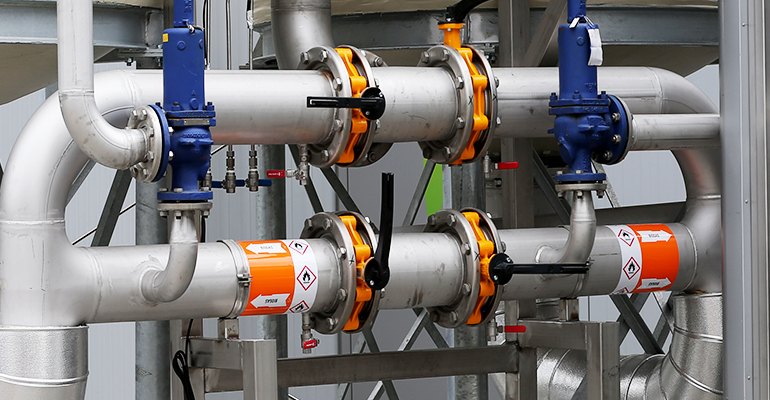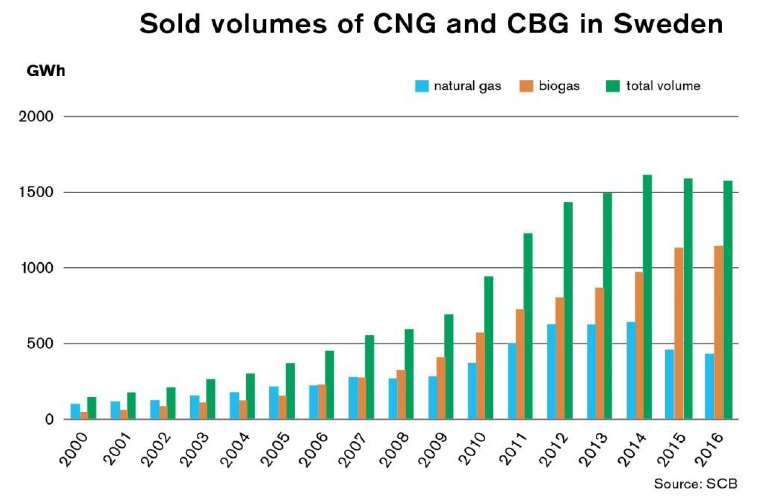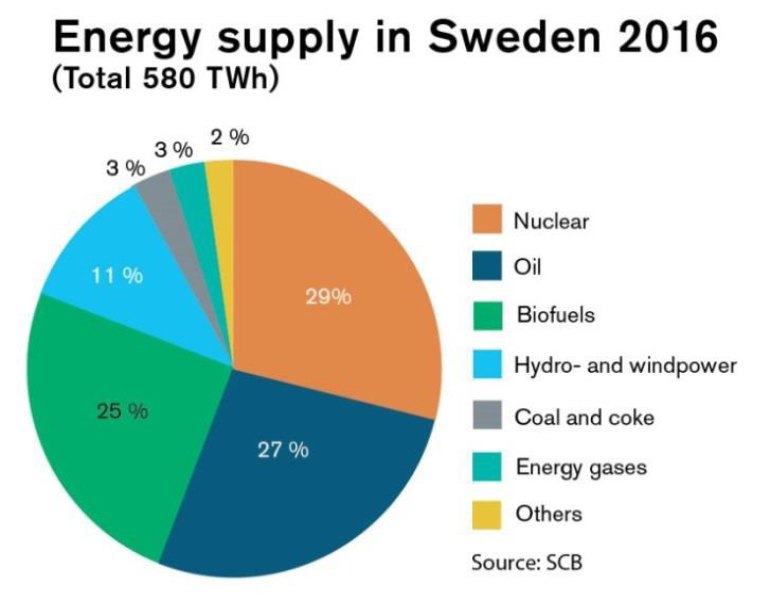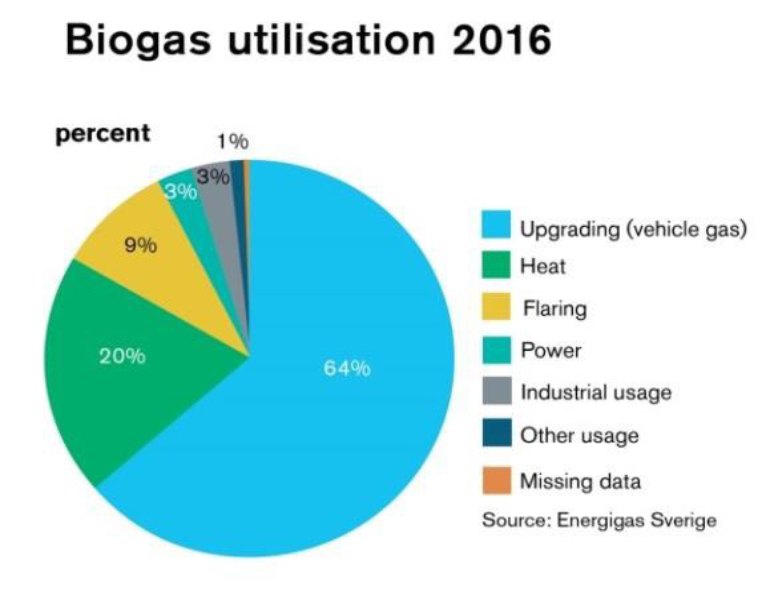As part of the closed, circular economy, biogas is more important than ever. Waste produced by society, in the form of food waste, wastewater, and residues from forestry and industry, is converted into renewable products such as propellants, electricity, heat, fuel, and raw materials for industry. Lars Sandström, Biogas Project Manager at Luleå Municipality, and David Newman, President of the World Biogas Association, examine how biogas can help Sweden become a net-zero-emission economy by 2045.

Biogas is a unique societal asset and a prerequisite for achieving the stringent climate targets set by the Swedish Government and the United Nations: becoming a net-zero-emission economy by 2045 and keeping global warming below 1.5°C by 2100 respectively. And time’s running out: in order to achieve the goal of 15 terrawatt hours (TWh) of biogas in Sweden by 2030, long-term market conditions need to be in place no later than 2021.
The biogas industry creates jobs, opens up new export and business opportunities, and helps Sweden take the lead in tackling climate change. It also ensures security of supply through producing home-grown fuel and agricultural fertiliser in the form of digestate.

The Swedish-based consultancy 2050 Consulting AB has calculated the economic benefit of the 2 TWh of biogas Sweden produced in 2016 at around SEK 4 billion of gross domestic product (GDP) per year. Research shows that, by implementing a few simple measures, Sweden could increase biogas production to up to 7 TWh per year, corresponding to a GDP value of SEK 14 billion per year.

New biogas strategy for Sweden
The Swedish Gas Association (Energigas Sverige), working in conjunction with the Swedish biogas industry, has recently developed a proposal for a national biogas strategy. The proposal suggests an overall goal of 15 TWh of biogas by 2030: 12 TWh for use in transport and 3 TWh for use in industry. This quantity of biogas would represent a GDP value of SEK 30 billion in domestic production.

In order to achieve this volume, wastes and digestates need to be better utilised in the biogas cycle. Significant investment in new substrates such as forest- and agriculture-based biomass, streamlining, and new technology are essential, along with larger production facilities and continued investment in the gas distribution network including refilling stations.

These developments require a clear strategy that involves a range of stakeholders. Municipalities and local councils in Sweden can contribute by taking the broad social benefit of biogas into account when procuring public transport and other services such as energy.
The wider context
The European Union’s (EU’s) proposed Fertilisers Regulation, designed to significantly ease the access of organic and waste-based fertilisers to the Single Market, should help to create a profitable market for digestate in Sweden and across Europe, while the Circular Economy Package will oblige Member States to introduce separate biowaste collections or recycle at source by the end of 2023, opening up huge business opportunities for food waste plant operators and the biogas supply chain.
At the other end of the biogas process, biomethane upgrading is developing rapidly. Renewable gas for both heat and transport is the current growth sector in many countries: there are now close to 600 biomethane upgrading facilities worldwide, of which over 500 are in Europe. There is also increasing interest in utilising carbon dioxide (CO2), which constitutes 40 percent of the biogas generated by the biomethane upgrading process, for industrial use.
And as alluded to already, there is increasing pressure on the Swedish and all other governments to urgently ramp up their emissions reductions following the Intergovernmental Panel on Climate Change’s (IPCC) recent report showing that governments have just 12 years to take action to keep global warming to less than 1.5°C by 2100. With MEPs having backed a net zero emissions target for the EU for 2050, Member States such as Sweden will need to further develop their biogas markets to continue to reduce emissions from waste, energy, and transport.
The forefront of technology
Sweden is at the absolute forefront of biogas technology and therefore has a unique opportunity to drive biogas development forward. If it invests now, it can maintain and strengthen this position, creating export opportunities, security of supply, jobs, and major environmental and climate benefits. The time for action is now.
Fakta
About Energigas Sverige and WBA
The Swedish Gas Association (Energigas Sverige) is a member-funded, industry association dedicated to promoting a greater use of gas energy. The association strives towards a safe, environmentally responsible and efficient utilization of gas and acts as a voice for all gases where safety, technical matters, marketing and advocacy are key elements. Statistics courtesy of the Swedish Gas Association. The World Biogas Association (WBA) is the global trade association for the biogas, landfill gas and anaerobic digestion (AD) sectors, dedicated to facilitating the adoption of biogas globally. We believe that the global adoption of biogas technologies is a multi-faceted opportunity to produce clean, renewable energy while resolving global issues related to development, public health and economic growth.


